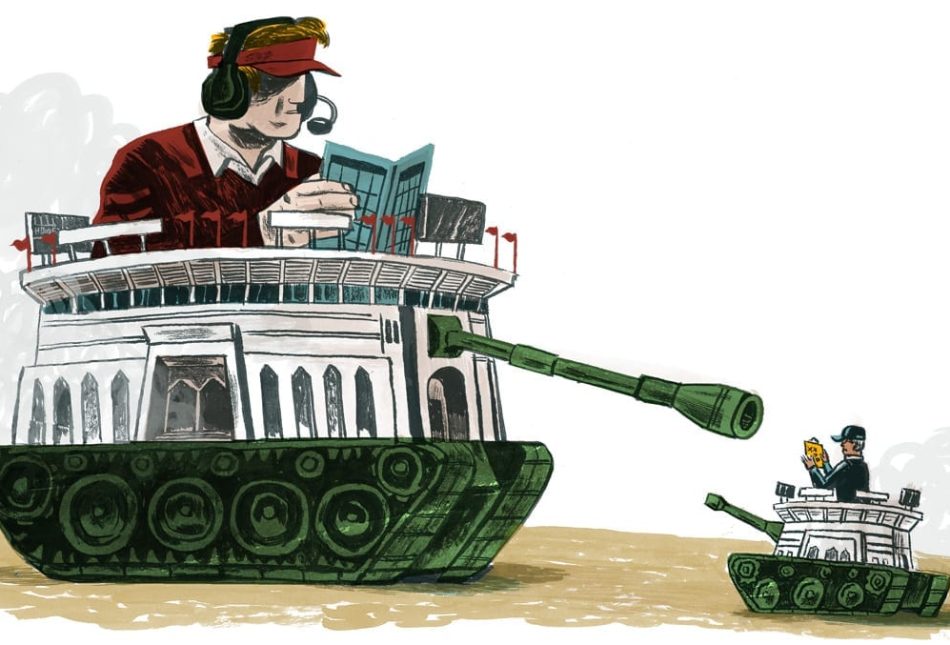UNM/NMSU Sports: Reliant on Student Fees, in Need of Re-prioritization/Alignment with University Missions

After initially suggesting a 4 percent tuition increase was needed, The University of New Mexico’s regents recently adopted a 3.1 percent tuition increase for next school year. On the heels of that the Board of Regents just announced that the University would continue subsidizing the athletic department to the tune of $1.2 million annually, a decision that Rio Grande Foundation President Paul Gessing argues is “fiscally inexcusable.”
While tuition rises (despite a big infusion of cash to higher education in 2019), both UNM and NMSU are struggling with falling enrollment. Are major college sports an unaffordable luxury?
In a new policy brief, “NMSU and UNM Sports Entertainment Expenditures Continue to Burden Academic Programs and Students” the Foundation’s education fellows William Patrick Leonard and Tristan Goodwin and organization president Paul Gessing discuss financial issues in the schools’ athletic programs and how those programs unnecessarily burden students.
As the paper notes, there are few among the top tier teams that do not need millions in student fees and university support to balance the books.
While program boosters and hard-core fans hold out hope that more budget support or some marquee recruit will turn a program’s fortunes around, this only rarely happens in basketball and virtually never happens in football (due to the dynamics of the sports themselves.”
Neither NMSU nor UNM have positively responded to the Legislative Finance Committee’s 2010 report questioning football’s role in supporting their mission statements.
Said Rio Grande Foundation president Paul Gessing, “New Mexico’s higher education leadership needs to prioritize how it spends resources. This includes the role of major college sports, especially football at both Division 1 programs.”
UNM’s leadership including Interim Provost Richard Wood say that the University remains “strapped for cash” despite the infusion of funds in the 2019 session. “If it is truly lacking in money, prioritization is a necessity” argues Gessing. “It is time to get creative or start cutting sports.”
